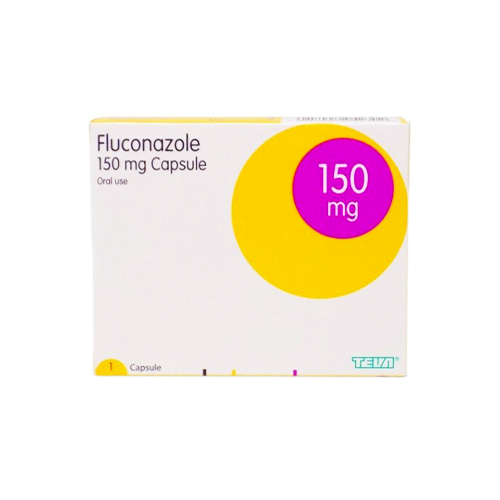- Effective treatment for thrush
- Quick action
- Relieves symptoms
Fluconazole
Fluconazole Capsules are used to treat candida infections caused by fungi and may also be used to prevent infections from occurring.
About Fluconazole
What is Fluconazole?
What is Fluconazole used for?
Fluconazole is used to prevent and treat candidiasis. This condition is caused by a fungal infection with one of the many types of the Candida.
Examples of candidiasis include vaginal yeast infection, as well as oral yeast infection (thrush). Candidiasis can also cause infections on other parts of your body, including your throat, oesophagus, lungs, and blood.
How does Fluconazole work?
Fluconazole belongs to a class of drugs called triazole antifungals.
Fluconazole works by blocking the ability of the fungi Candida and Cryptococcus to reproduce. For people with infections from these fungi, this drug helps to get rid of the infection.
How to use Fluconazole
Adult dosage (ages 18–64 years)
Typical dosage: One 150-mg dose.
Side effects & precautions
Fluconazole and other medications
Examples of drugs that can cause interactions are listed below.
Terfenadine, Pimozide, clarithromycin, erythromycin, ranolazine, lomitapide, donepezil, voriconazole, and quinidine. When used with it, these drugs can cause a life-threatening heart rhythm condition called torsades de pointes.
Diabetes drugs such as glyburide and glipizide. Increased side effects can include low blood sugar.
Cyclosporine, tacrolimus, and sirolimus. Increased side effects can include kidney damage.
Fluconazole warnings
Kidney and liver disease:
Fluconazole can reduce the effectiveness of your kidney and liver functions. Please consult your doctor if you have pre-existing kidney or liver problems.
Heart Rhythm:
If you already have an abnormal heart rhythm, taking it may lead to dangerous heart rhythm problems.
Pregnant women:
This drug is not suitable for pregnant women
Women who are breastfeeding:
Fluconazole passes into breast milk and may cause side effects in a child who is breastfed. Talk to your doctor if you breastfeed your child. You may need to decide whether to stop breastfeeding or stop taking this drug.
Side-effects
Like all medicines, this medicine can cause side effects, although not everybody gets them.
Common side effects
- headache
- diarrhoea
- nausea or upset stomach
- dizziness
- stomach pain
- vomiting
- changes in the way food tastes
- severe rash in people with lowered immunity
Reporting of side effects
If you get any side effects, talk to your doctor. This includes any possible side effects not listed in this leaflet. You can also report side effects directly (see details below). By reporting side effects you can help provide more information on the safety of this medicine.
United Kingdom
Yellow Card Scheme
or search for MHRA Yellow Card in the Google Play or Apple App Store
Documentation
Fluconazole Patient Information Leaflet (PIL)



We’re here to help.
Our friendly team is available to help Monday to Friday 9:00am - 5:00pm.
If you need urgent assistance, do not use this service. Call 111, or in an emergency call 999.

